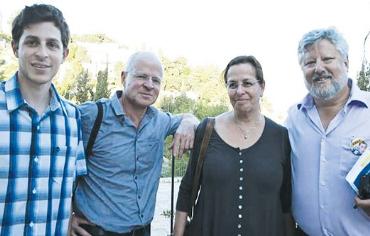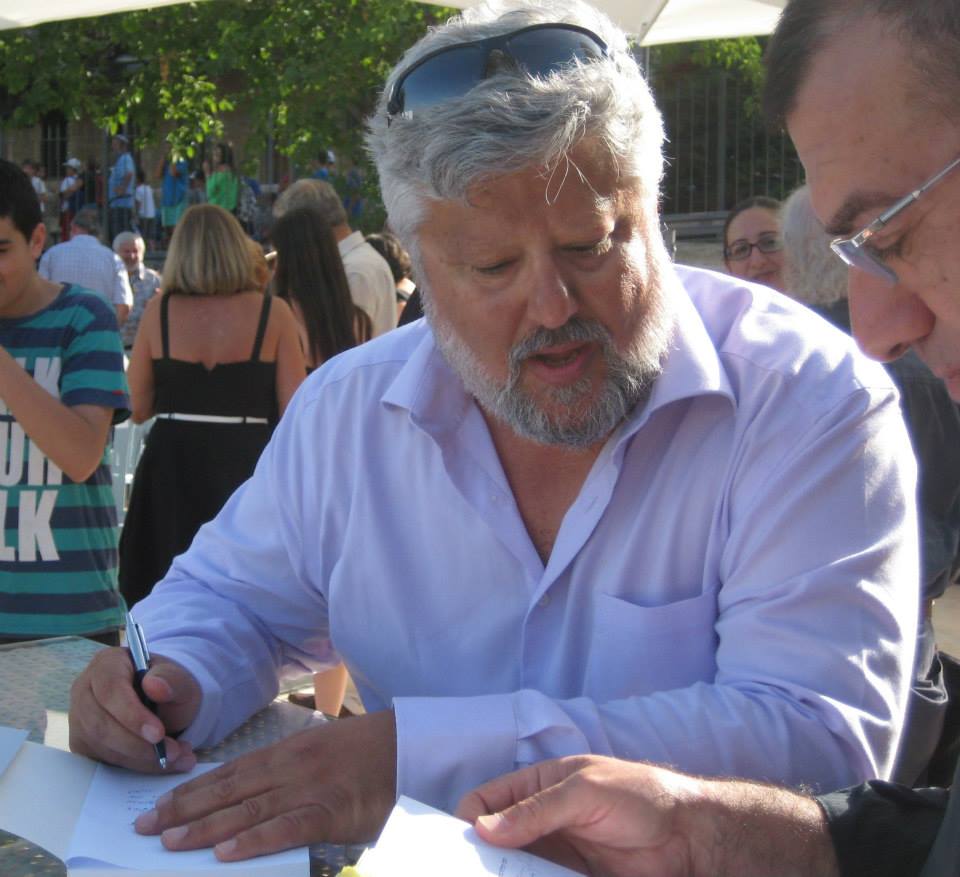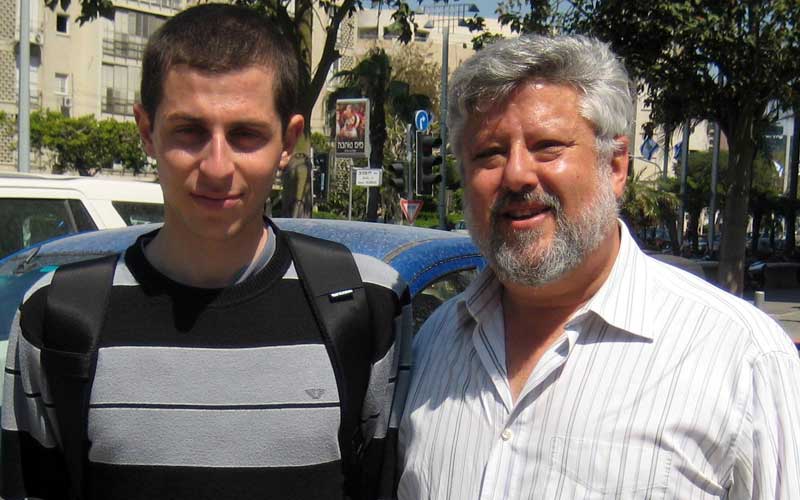Baskin, a member of the PIJ editorial board, began the discussion with a personal anecdote: in 2005, he received a call from his wife, informing him that her first cousin, Sasson Nuriel, had gone missing. Shortly thereafter, Hamas released a video depicting Nuriel, blindfolded and injured, pleading for the release of Palestinian prisoners. Baskin, due to his many connections within the Palestinian leadership, did what he could to negotiate the release of Nuriel, but, unfortunately, Nuriel’s body was found just a few days later.
“I swore while standing over his grave that if anyone ever came to me again, I would do everything in my power to not let this happen again,” Baskin said.
Saving Schalit
That time came very soon for Baskin. On June 25, 2006, Schalit was abducted from an Israeli army base on the border of the Gaza Strip by members of various militant groups associated with Hamas.
“From six days after his abduction to five years and four months later, not a day went by that I didn’t do something to work out a deal between Israel and Hamas to bring Schalit home,” Baskin said.
And that he did. On Oct. 18, 2011, Schalit returned safely home to Israel in exchange for 1,027 Palestinian prisoners, four of whom had been involved in the murder of his wife’s cousin. Baskin recalled receiving a call from Nuriel’s widow, imploring him as to what could possibly drive him to aid in the release of his cousin’s murderers. I think Nuriel’s widow’s question is an important one. Why, after the personal pain that members of Hamas had caused him and his family, was Baskin willing to negotiate with Hamas, especially if doing so would allow prisoners responsible for the deaths of 569 Israelis to go free?
A perennial optimist
Prusher at many times throughout the discussion referred to Baskin as an optimist. This struck me as odd at first–her attachment to associating Baskin with this term.
However, as Baskin continued to speak, I came to understand why no word could be more fitting to describe him.
A nuanced view of Hamas
It is not often that you hear of anyone, especially an Israeli, who is not only willing to negotiate with Hamas, but speaks of Hamas as more than just a terrorist group. That Baskin did. Rather than painting Hamas as the monolithic enemy, Baskin retold tales of his personal meetings with members of Hamas and the diversity and nuance of their stances. He recognized that it was not Hamas in its entirety that carried out Schalit’s kidnapping, but certain militant wings of Hamas, and that the political wing of Hamas does not support such actions.
“Anyone who travels around this region can tell it’s probably not that hard to kidnap a soldier,” Baskin said. “Obviously there is a reason there hasn’t been more kidnappings.”
Baskin also noted what he believes to be Hamas’s dedication to the cease-fire and its attempts to prevent rocket attacks from the Gaza Strip, as Hamas understands that any aggression perpetrated by Gazans will be responded to in exponential force by Israel. Never before had I heard an Israeli talk about Hamas in such a positive light, and it was a welcome change for me. While it is true that Hamas has carried out many atrocities, wrongdoings have been committed by both sides in this conflict, and it is only by coming to recognize the other not as the epitome of evil, but as a party consisting of a diversity of opinions and one with which Israel must negotiate so that a lasting peace can be achieved.
An ardent belief in the peace negotiations
Additionally, during the talk Baskin expressed not only his hope about the prospects of the ongoing peace negotiations facilitated by U.S. Secretary of State John Kerry, but his certainty that they are heading in a positive direction. When asked about recent statements in the media issued by both Palestinian and Israeli political leaders about the lack of a partner on the other side and their seeming unwillingness to compromise, Baskin responded, “The only important thing that is being said is what is being said behind closed doors, and I don’t think what is being said in the media is what is being said behind closed doors.” He does not believe that there is any reason to despair.
Baskin did acknowledge that there are still many hurdles to surmount in creating a framework agreement, including Israel’s new demand that the Palestinian Authority recognize Israel as a Jewish state, but he does not see this as an end-all demand. Rather, he believes (and claims that Mahmoud Abbas confirmed this in a personal conversation) that the Palestinian authority would recognize Israel as Jewish state if it 1) guaranteed the rights of all of its Arab citizens, both in an individual and collective sense and 2) created a fair resolution to the refugee issue. This Israeli demand, which seemed to many proponents of a two-state solution to be a slap-in-the-face to the entire negotiation process, Baskin viewed as just another obstacle that could and would be overcome. Baskin’s optimism, although I am not sure if I share it, is a rhetoric I welcome and encourage in the coming months, as the success of the ongoing negotiations is dependent upon people like Baskin believing in the possibility of their success.
For more information on Baskin’s book: The Negotiator: Freeing Gilad Schalit from Hamas, visit https://gershonbaskin.org/gilad-schalit/the-negotiator-freeing-gilad-shalit-from-hamas/



